Silent retreat

I spent Easter at Nirvana Wellbeing Retreat in the Gold Coast hinterland, on a 4 day silent meditation retreat with my teacher Shanti Gowans. Shanti has been my teacher for over half my life and to spend time with her and the other participants was wonderful All were experienced practitioners so there was a lot of silence and stillness during practice. No talking at all during meals, free time etc. and most people avoided eye contact. It was a magical opportunity to turn inwards, I felt such a sense of familiarity and belonging there. Shanti emanates peace, complete acceptance and non judgement with everything that is, including us who might have looked like Buddhas meditating but inside was a different story. Spending time in the presence of a highly realized person can't help but lift you up - it's not just what they say and don't say, but how they live. So many of the things we get caught up in, wound by by, really don't matter. A shift in awareness changes everything. Chris
Past emotions, thoughts and impressions are stored in the mind and manifest themselves in the body. Past anger is stored in the hamstrings. To help release this, humbly and gently let go into forward stretches when practising your asanas. Emotional pain is stored in the chest, where it functions like armour, hardening around the heart. This armour may be dissolved by backward stretches. Extreme stiffness can be related to mental rigidity or the inability to cope with unknown situations. Extreme flexibility, on the other hand, can be related or the inability to take a position in life or to set any boundaries. Yoga is the middle path between these two extremes. Shanti Gowans
Most people struggle with forgiveness, precisely because it is against the nature of our reason to forgive. Forgiveness doesn't make emotional sense to us, much less appeal to our 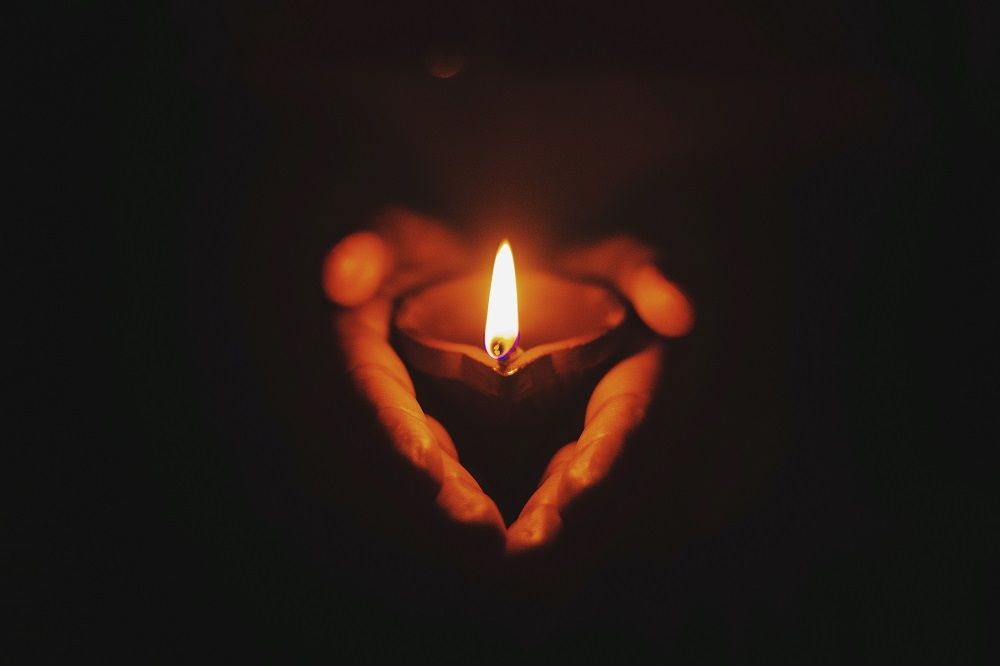 pride, although it might sound great in theory. Our reason and emotions prefer the logic of justice, an eye for an eye, a hurt for a hurt. Forgiveness seems to fly in the face of that, as if we are letting the person who wronged us off the hook. Forgiveness is a challenge meant to cleanse the window of your mind, particularly those through which you can see only your need for personal justice. You can't see anyone else's pain through these windows, because like mirrors, they reflect only you: you are the centre of the universe, yours is the only pain that counts, and all that is just and fair should be based on what serves your life. But forgiveness releases you from far more than the individual with whom you have a painful history. It releases you from an ego state of consciousness that clings to a need for justice built around the fear of being humiliated, based on prior experiences of humiliation. Forgiveness is essential to healing. Forgive the past, accept what cannot be changed in your life and be present to you life as it is right now. Caroline Myss
pride, although it might sound great in theory. Our reason and emotions prefer the logic of justice, an eye for an eye, a hurt for a hurt. Forgiveness seems to fly in the face of that, as if we are letting the person who wronged us off the hook. Forgiveness is a challenge meant to cleanse the window of your mind, particularly those through which you can see only your need for personal justice. You can't see anyone else's pain through these windows, because like mirrors, they reflect only you: you are the centre of the universe, yours is the only pain that counts, and all that is just and fair should be based on what serves your life. But forgiveness releases you from far more than the individual with whom you have a painful history. It releases you from an ego state of consciousness that clings to a need for justice built around the fear of being humiliated, based on prior experiences of humiliation. Forgiveness is essential to healing. Forgive the past, accept what cannot be changed in your life and be present to you life as it is right now. Caroline Myss
Mindfulness comes from the Sanskrit and Pali words for "to remember" and "clear comprehension". It is the ability to calmly concentrate and attend to the present, to what is.
"The "what is" is what you are, not what you would like to be; it is not the ideal because the ideal is fictitious, but it is actually what you are doing, thinking, and feeling from moment to moment. 'What is' is the actual, and to understand the actual requires awareness, a very alert, swift mind." Krishnamurti
Advertising and the internet tell us we never have enough (and the internet often tells us we aren't enough). We need to take a step back from this and look at all the things we have been given in our life: the care our parents gave us. Parents look after their children for years and we can see all we have been given by that.  Think for a minute about all the other areas in your life where you have enough. When we feel we don't have enough what is it we're feeding on? Attention from others? Comparing ourselves to another? Feeling we are lacking in some way? Because then we use people and resources. But look at our mind, it is often experiencing dissatisfaction and we don't sit with it and look at it, we keep moving to avoid it. Our mind is never quite satisfied it is always looking for more and we never have the chance for appreciation of what we have. Are we ok with what we have? The things we're holding on to are the things causing us suffering. When we realise all we have we can have a sense of gratitude and we are more willing to be kind to others and to help them. Our kindness can affect other people's perspective on themselves and their life. Make an effort to know your own mind, know what you're doing while you're doing it. And look for the good and your own good will come out. Bodhivana Buddhist Temple, East Warburton
Think for a minute about all the other areas in your life where you have enough. When we feel we don't have enough what is it we're feeding on? Attention from others? Comparing ourselves to another? Feeling we are lacking in some way? Because then we use people and resources. But look at our mind, it is often experiencing dissatisfaction and we don't sit with it and look at it, we keep moving to avoid it. Our mind is never quite satisfied it is always looking for more and we never have the chance for appreciation of what we have. Are we ok with what we have? The things we're holding on to are the things causing us suffering. When we realise all we have we can have a sense of gratitude and we are more willing to be kind to others and to help them. Our kindness can affect other people's perspective on themselves and their life. Make an effort to know your own mind, know what you're doing while you're doing it. And look for the good and your own good will come out. Bodhivana Buddhist Temple, East Warburton
Why do humans struggle? If there was nothing in it for you, you wouldn't do it. This is important to understand because spiritual human beings tend to wonder, "Why can't I just let go of it?" You hang on because you get some perceived benefit from it - you get to have this experience of being me. It's not 100% terrible, and you can get come sense of satisfaction out of it. To the time-bound sense of self, there can be some temporary, great experiences. For example: you go to your neighbours and beat them at gin runny, and you feel totally better when you leave. Or you hit the stock market and for one year you feel wealthy and on top of the world, and then the next year, it's gone. Or you go to your therapist or spiritual teacher and start thinking you are making progress, and there is a sense of getting better. But this is false happiness, not real happiness. False happiness is a trance, an egoic deception. Freedom, certainly enlightenment, has everything to do with dying to what is. It's very simple. Enlightenment is nothing more than the complete absence of resistance to what is. End of story. Adyashanti
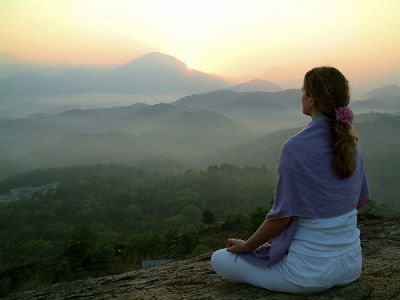
Learn to live without self concern. For this you must know your own true being as indomitable, fearless, ever victorious. Once you know with absolute certainty that nothing can trouble you but your own imagination, you come to disregard your desires and fears, concepts and ideas, and live by truth alone. Sri Nisargadatta Maharaj
There is a very simple secret to being happy. Just let go of your demand on this moment.
Any time you have a demand on the moment to give you something or remove something, there is suffering. Your demands keep you chained to the dream state of the conditioned mind. The problem is that when there is a demand, you completely miss what is now.
Letting go applies to the highest sacred demand and even the demand to love. If you demand in some subtle way to be loved, even if you get love, it is never enough. In the next moment the demand reasserts itself, and you need to be loved again. But as soon as you let go, there is knowing in that instant that there is love here already. The mind is afraid to let go of its demand because the mind thinks that if it lets go, it is not going to get what it wants, as if demanding works. This is not the way things work. Stop chasing peace and stop chasing love, and your heart becomes full. Stop trying to be a better person, and you are a better person. Stop trying to forgive, and forgiveness happens. Stop and be still. Adyashanti
When you feel stressed, your body releases a hormone called cortisol, which relates to your overall health. Our bodies have adapted and evolved to be able to handle the stresses of everyday life. However, 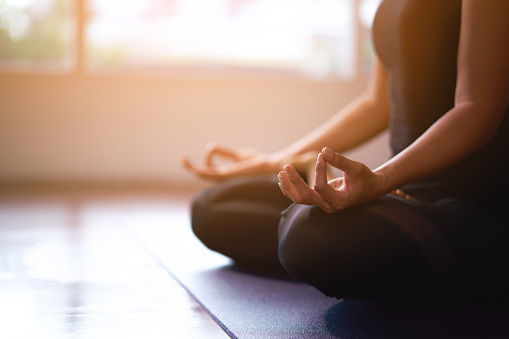 even as evolved as we are, our brain cannot tell the difference between good (beneficial) stress or bad (harmful) stress. Good stress might arise from getting promoted at work, or moving into a larger home with more room for your family. Bad stress, on the other hand, might arise from constant worry about your financial situation, or chronic health problems and pain.
even as evolved as we are, our brain cannot tell the difference between good (beneficial) stress or bad (harmful) stress. Good stress might arise from getting promoted at work, or moving into a larger home with more room for your family. Bad stress, on the other hand, might arise from constant worry about your financial situation, or chronic health problems and pain.
In each situation when the body feels stressed, a message is sent to the brain to release the hormone, cortisol, which is the 'fight or flight' hormone that enables you to spring into action. What is interesting is that in a situation where stress occurs, but a goal or the desired outcome is attained, the brain recognises this and cortisol stops being released. The body naturally reduces the amount of the hormone in the blood as it is filtered through the kidneys.
When stress occurs without a resolution, the level of cortisol builds up in the blood, causing all manner of ill health symptoms.
There are a host of negative mental and physical symptoms tied into having too much continuous cortisol in your blood. Unchecked amounts of cortisol have been clinically linked to depression, anxiety, memory loss, learning difficulties, and weakening of the immune system.
However, there are many things you can do to lessen the effects of cortisol and live a healthier life. The greatest weapon against stress is your ability to choose one thought over another.
Physical activity, even a moderate amount, such as 20 minutes each day is a highly recommended way to reduce stress, and in turn, reduce cortisol levels.
Meditation, yoga and practicing mindfulness all rank high as cortisol-busters. However, other things such as simply being social, laughing, practicing an enjoyable activity, and listening to or playing relaxing and enjoyable music also greatly benefit people in the war against stress. While it's not difficult to control cortisol by controlling stress, you do have to be conscious of your stressful feelings, and be ready to combat them using relaxation techniques and exercise.
Left unchecked, constant stress will leave your cortisol levels too high, and your mind and body, both inside and out, will suffer for it. So stop, take a deep breath, and set your sights on a healthier you. Shanti Gowans
Practice perceiving the world around you, without interpretation, without interference of the mind, just being aware with your sense perceptions, by feeling the energy of the inner  body, by consciously working with the present moment and accepting whatever arises. Make it a practice so that you’re alert and watchful and no matter what life brings to you during the course of a normal day, see if you can not resist whatever arises in the present moment. Immediately align yourself with it. That’s a beautiful practice, if that were the only one that would be enough. Always align yourself so that you’re not in a dysfunctional state of non-alignment with what is in the present moment. Eckhart Tolle
body, by consciously working with the present moment and accepting whatever arises. Make it a practice so that you’re alert and watchful and no matter what life brings to you during the course of a normal day, see if you can not resist whatever arises in the present moment. Immediately align yourself with it. That’s a beautiful practice, if that were the only one that would be enough. Always align yourself so that you’re not in a dysfunctional state of non-alignment with what is in the present moment. Eckhart Tolle
The Open Secret of Yoga Embodied Mindfulness
Mindfulness can be understood by its meaningful parts: Mind + Full + only this is
Yogic mindfulness in everyday life refers to a visceral, natural, easeful and lucidly clear way of being an authentic and compassionate human being in everyday life. This comes about through the holistic and all inclusive embodiment of our inherent, pristine nature and basic goodness. It is the hope for our present world, and for the remarkable future for all beings who will dwell together on earth as one family, without exception.
The practice of mindfulness while sitting in silence is the somatic practice of just sitting while wholly being the still intelligence of your core-self moment by moment. Sensually hit the mark of stillness in your lower abdomen while just sitting.
The way of living naturally and simply being authentic arises from the crystal clarity experienced by simply sitting.
To wholly embody the still brilliance that arises from the core-self inside of just sitting, together with wholly embodying the still brilliance of core-self inside of just living means that mindfulness is not just sitting in the still behavioural form of padmasana (lotus posture) only. It is hitting the still mark of core-self while just being, just doing, just loving, just caring, just feeling, just thinking, just working, just playing, just anything.
Yogic mindfulness is the still way of being passionately alive underneath the dynamic functioning of our ego-self and thinking mind. This is an important point for all beginners and veteran practitioners of meditation to understand. Yogic mindfulness is not about stopping the mind from thinking or eliminating our personality or ego-self functioning. It is the still compassionate intelligence of our core-self that silently illuminates and refines our ego-self functioning while enjoying boundless intimacy, vast oneness, and limitless interdependency with all beings and things.
The embodiment of yogic mindfulness is deceptively simple and quite ordinary when viewed by others. However, yogic mindfulness experienced from within this-only-moment-body is the pristine, vibrant, and wondrous experience of being ecstatically alive while realising total human completion and fulfilment with nothing lacking.
In yogic mindfulness, we do not experience any tensional discrepancy between our experience of self and any 'ideal-self' who we 'ought to be'. In yogic mindfulness, there is only the bright wisdom of an eternally flashing moment of core-self and the felt sacredness of all beings and things that exist throughout the whole universe.
Yogic mindfulness is disillusioning because it cuts off all our illusions about who we think we are, who we would like to be, what we think we know, what we absolutely believe in, what fulfilment is, and what we think spirituality and sacredness are. This is why the embodiment of yogic mindfulness is defined as ‘the somatic practice of clarity that liberates the basic goodness, vast sacredness, and lucid brilliance of our true nature.’
When we struggle to gain personal fulfilment from without, or arouse a life of sacredness only through religious beliefs, we are actually doubting or denying their immanent and unconditional existence within our own embodied experience of everyday life. The harder we try to reach the horizon of fulfilment, sacredness, and completion, the farther it recedes from us. Yogic mindfulness is the somatic and visceral transmission that the horizon of total fulfilment and completion is always right beneath our feet, just as we are, just as It is. Shanti Gowans
Is Repetition a Mistake or a Decision?
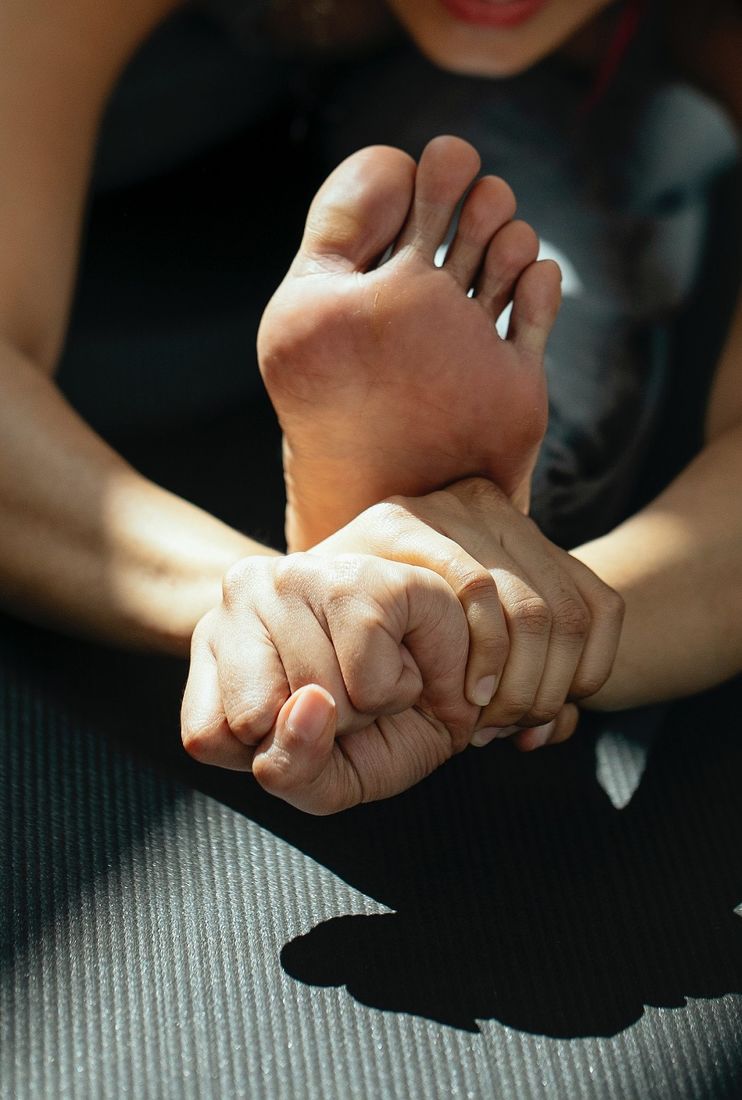 If you drive your car on the road and get into an accident, that might be an accident.
If you drive your car on the road and get into an accident, that might be an accident.
If you drive the same car on the same road and get into another accident the very next day, there might be something wrong with the car. If you drive a new car on the same road and get into yet another accident on the third day, you might still get a benefit of doubt that perhaps, just maybe, there is something wrong with the road.
However, if you drive a new car on a new road and get into the fourth accident for four consecutive days, it's time for the driver to wonder if there might be something wrong with the driver!
If a pattern is constantly repeating in your life, there is a message for you. Lessons in life will always be repeated until they are learned. Also, bear in mind what Albert Einstein reminded us: "We cannot solve our problems with the same thinking we used when we created them."
The inconvenient truth is, when you keep repeating a mistake, it is no longer a mistake. It is a decision.
There are no "invisible" forces blocking you from the greater success for a better life, the life of your dreams, a life worth fully living.
Outcomes are not in your control, but what is in your control is effort and your intentions.
You are the only person responsible for your happiness and success. Prioritise yourself You are not an option. Shanti Gowans
Passion Can Be Infectious
You might find yourself so much in awe, and drawn to people because of their enthusiasm for the things they do or dream about. They constantly return to the same topic again and again, engaging others with their desire to pull off something that doesn't seem all that likely or which is going to require some serious dedication on their part to get it done.
No matter what their goal is, if their eyes light up when they are discussing their passion there is a strange infectious energy that they end up transmitting to everyone within earshot of them.
Surround yourself with people such as these. They don't just stimulate their own passions when they hold your attention with the details of their lives. They make you want to go out and do incredible things too.
Even better, become one of them. Shanti Gowans
How can we be free to look and learn when our minds from the moment we are born to the moment we die are shaped by a particular culture in the narrow pattern of "me"?
For centuries we have been conditioned by nationality, caste, class, tradition, religion, language, education, literature, art custom convention, propaganda of all kinds, economic pressure, the food we eat, the climate we live in, our family, our friends, our experience - every influence you can think of - and therefore our responses to every problem are conditioned.
Are you aware that you are conditioned? Krishnamurti
Difficult Decisions
 A group of children are playing on some railway tracks, of which one is still in use, while the other is disused.
A group of children are playing on some railway tracks, of which one is still in use, while the other is disused.
Only one child is playing on the disused track, while the others are playing on the operational track.
The train arrives, and you are just beside the track interchange. You could make the train change its course to the disused track and save most of the children. However, that would also mean the lone child playing by the disused track would be sacrificed; or would you rather let the train go its way?
Take a pause and think about what kind of decision you would make. Most people might choose to divert the course of the train, and sacrifice only one child, because to save most of the children at the expense of only one child seems the rational, moral and emotional decision to make. However, the child choosing to play on the disused track had in fact made the right decision to play at a safe place, and nevertheless, had to be sacrificed because of his/her ignorant friends who chose to play where the danger was.
This kind of dilemma happens around us everyday. In the office, community, in politics, in a democratic society, the minority is often sacrificed for the interest of the majority, no matter how foolish or ignorant the majority are, and how farsighted and knowledgeable the minority are.
The child who chose not to play with the rest on the operational track was side lined. And in the case s/he was sacrificed, no one would shed a tear for her or him except for their close ones.
The person who forwarded the story said she would not try to change the course of the train because she believed that the children playing on the operational track should have known very well that track was still in use, and that they should have run away if they heard the train's sirens. If the train was diverted, that lone child would definitely die because s/he would never have thought that the train could come over to that track!
What is the right decision? While we are all aware that life is full of tough decisions that need to be made, we may not realise that some hasty decisions may not always be the right one. This is certainly food for thought.
Let us take a step back, pause and think well, before making decisions. Shanti Gowans
Why does one go into retreat?
One goes into retreat to understand who one really is and what the situation truly is. When one begins to understand oneself then one can truly understand others because we are all interrelated. It is very difficult to understand others while one is still caught up in the turmoil of one's emotional involvement - because we're always interpreting others from the standpoint of our own needs. That's why, when you meet hermits who have really done a lot of retreat, say twenty-five years, they are not cold and distant. On the contrary. They are absolutely lovely people. You know that their love for you is totally without judgement because it doesn't rely on who you are or what you are doing, or how you treat them. It is totally impartial. It's just love. It's like the sun - it shines on everyone. Whatever you did they'd still love you because they understand your predicament and in that understanding naturally arises love and compassion. It's not based on sentiment. It's not based on emotion. Sentimental love is very unstable, because it's based on feed-back and how good it makes you feel. That is not real love at all." Tenzin Palmo
Our mind is so untamed, out of control, constantly creating memories, prejudices, mental commentaries. It's like a riot act for most people! Anarchy within. We have no way of choosing how to think and the emotions engulf us. Meditation is where you begin to calm the storm, to cease the never-ending chattering of the mind. Once that is achieved you can access the deeper levels of consciousness which exist beyond the surface noise. Along with that comes the gradual dis-identification with our thoughts and emotions. You see their transparent nature and no longer totally believe in them. This creates inner harmony which you can then bring into your everyday life." Tenzin Palmo
We are seeing a lot of signs ...
- signs in nature, because people are taking huge action every day to lessen their impact on the environment. - signs on the faces of politicians, who look more nervous than ever as they feel their grip slipping away - signs in the lives of the people, who are moving away from the ways of 'the old world', demanding the new one begin.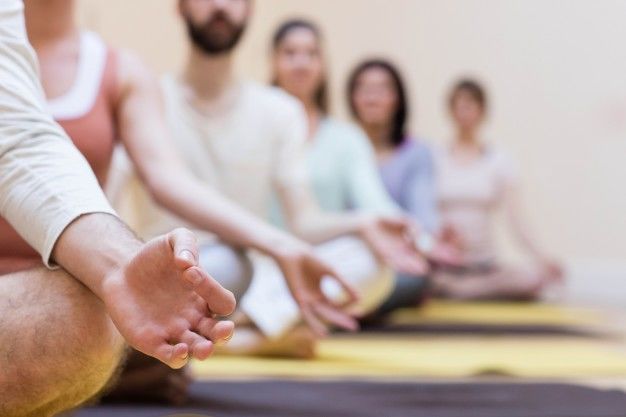 These are positive changes. The end of 'the old world' is upon us. There's a bright new world being born. So many of us, new world citizens gather to share, learn, grow, and help. In the bright new world, we're being the change. In this brave new world, you have the power to get results from your vision, passion, action. You can make your wildest dream a reality. You can experience all the success, beauty, love, excitement, impact and freedom that you want. And the journey to this bright new world begins simply by being present. Every second counts, because life is nothing more than an accumulation of seconds. And your mission is to help, to refresh, uplift, so that you can create the most fulfilling life you can possibly have on your journey to optimal health. Which is holistic. When you are nourished, you have the power, energy, mood, and mental acuity you need to stay present and make every second count. When you're nourishing your mind and body you are doing more than taking care of yourself...You are taking huge steps and priming yourself to create a more fulfilling life. And that ultimately makes the bright new world a happier and healthier place. Shanti Gowans
These are positive changes. The end of 'the old world' is upon us. There's a bright new world being born. So many of us, new world citizens gather to share, learn, grow, and help. In the bright new world, we're being the change. In this brave new world, you have the power to get results from your vision, passion, action. You can make your wildest dream a reality. You can experience all the success, beauty, love, excitement, impact and freedom that you want. And the journey to this bright new world begins simply by being present. Every second counts, because life is nothing more than an accumulation of seconds. And your mission is to help, to refresh, uplift, so that you can create the most fulfilling life you can possibly have on your journey to optimal health. Which is holistic. When you are nourished, you have the power, energy, mood, and mental acuity you need to stay present and make every second count. When you're nourishing your mind and body you are doing more than taking care of yourself...You are taking huge steps and priming yourself to create a more fulfilling life. And that ultimately makes the bright new world a happier and healthier place. Shanti Gowans
Trust
The people we trust most when we come into the world are our parents. We have unconditional trust in them - that is, up until they destroy it. If you are a parent, please don't do this to your children.
Many people grow up filled with fear. If they do not eat their dinner they are reprimanded, if they break something by accident, they are yelled at, if they lose something they are punished, if they venture into something out of curiosity, they are banished into their room for hours, and when they express themselves, they are hit. It is no surprise that these people may not trust anyone in their early childhood. Which could explain why such people feel and act like lone wolves.
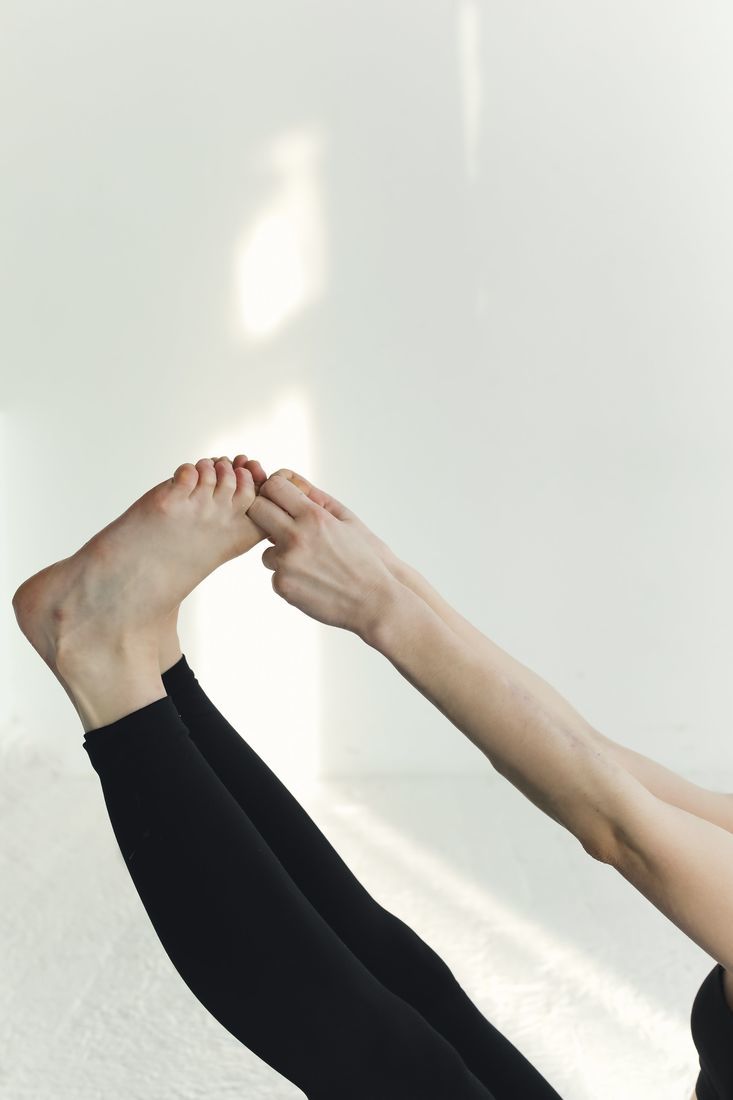 At a young age, if the person you trust the most shatters your trust, it is easy to understand how you can lose trust in everything else and in all others. Even if one parent tries their best to create an environment of love and mask the fear, your trust in their ability to protect you may not last indefinitely.
At a young age, if the person you trust the most shatters your trust, it is easy to understand how you can lose trust in everything else and in all others. Even if one parent tries their best to create an environment of love and mask the fear, your trust in their ability to protect you may not last indefinitely.
However, in relationships, love, business and life you need to let your guard down, and this can be challenging at the start. However, through self enquiry, healing and finding your inner child, you can shed layers of distrust. And when you open that door, you will find it less scary than you thought, and it so often generally feels refreshing being more open. You will even trust yourself more. This means that you do not doubt your decisions and listen to your intuition. You learn to trust your gut, and also recognise that when you don't trust it, things often go wrong.
Trust is at the core of everything. Trust in yourself, in your calling, in the world around you, ad in the universe.
Together with the traditional four elements of true love, namely: loving kindness, compassion, joy and equanimity, there are two more elements: respect and trust, which are found in the four, but it helps to mention them. When you love someone, you have to have trust and confidence. Love without trust is not yet love.
Of course, it goes without saying that you have to have trust, respect and confidence in yourself. Trust that you have a good and compassionate nature. You are part of the universe; you are made of stars. When you look at another person, see that s/he is also made of stars and carries eternity within their genes. When you look this way, you naturally feel reverence. True love cannot be without trust and respect for yourself and the other person. Shanti Gowans
Better to give than to receive
You give but little when you give of your possessions. It is when you give of yourself that you truly give. Kahlil Gibran
We know that it is better to give than receive, but in reality, this axiom is difficult to live by. We live in a world that seeks personal gain, even encourages it. And as a result, we seek to make sure the things we receive are equal to the gifts that we give. For instance, we decide we will offer forgiveness, but only if they make the first phone call. We will show love, but only after they sacrifice something. And we may respond in goodness, but only after they start showing some kindness to us first. Suddenly, we fall into a foolish trap, acting as if it is better to receive than to give.
live by. We live in a world that seeks personal gain, even encourages it. And as a result, we seek to make sure the things we receive are equal to the gifts that we give. For instance, we decide we will offer forgiveness, but only if they make the first phone call. We will show love, but only after they sacrifice something. And we may respond in goodness, but only after they start showing some kindness to us first. Suddenly, we fall into a foolish trap, acting as if it is better to receive than to give.
Love We need to show appreciation to those who mean the most. And while expressing love to another may be the most beautiful thing we can ever do, it can also be amongst the most difficult, especially when those who should love us the most, withhold it. Love anyway. True love is not self-seeking. It keeps no record of wrongs and expects nothing in return.
Joy This world never allows for perfect circumstances, everything is imperfectly perfect. If you wait to find joy in externals, you rarely will. It is unwise to base your happiness fully on the actions of others. However, this does not mean that you can't bring a little joy into the life of another by the things that you do and the words that you speak. You can still be intentional about spreading joy wherever you go.
Peace Family and personal relationships can cause conflict, turmoil, and stress at any time. Tensions are often be heightened during the holidays. Offer the gift of peace by taking the first step. One phone call or conversation may not make amends for years of hurt, but it still might be the first step that needs to get taken by somebody.
Hope Hope can be one of the greatest assets and treasures you can find for yourself, and one of the greatest gifts you can ever give to somebody else. See the good in others. Believe in their greatest potential. And encourage often.
Reconciliation As a baby, you were was born to offer forgiveness to those who need it most. This opportunity, to offer forgiveness and reconciliation to those who need it most in your life continues. Take the first step. Even before an apology has ever been uttered, you can lay the foundation for reconciliation that makes it possible.
Goodwill People may desire to harm you, but wishing pain and suffering upon them in response only compounds the hurt. Harbouring resentment, ill will, and bitterness in your heart allows their actions to control you indefinitely into the future. On the other hand, wishing goodwill upon those who hurt you frees your soul, and allows us to move on to better things.
The only thing I can think of to say that hasn't already been said, is be good. Be good to yourself. It is like the oxygen mask on the airplane. You cannot do an ounce of good in the world if your cup isn't overflowing first. Put away the distractions for just a few minutes. Be present. If you can find one pure, quiet moment of honesty with yourself, you will find your truth. Once you do, express your truth without shame. That will unleash you. You will be able to live every day with true love and passion. Then, you can be overwhelmingly good to your friends and loved ones. You can be uncommonly good to the stranger on the street. The best thing you can do is to live with love and without fear. Love will always win. Raise the level of love in the world by starting with yourself. Shanti Gowans
Neuroplasticity
Do you sometimes wonder why, in spite of there being millions of cars on the road, there are so few accidents?
At any given time there are millions of tired, angry, distracted, impatient and drunk or drugged people on
the road. Yet, for some reason, the roads are not littered with automobile wrecks.
This is because driving is largely an unconscious process, and while a person may drift off, their brain is still behind the steering wheel. All a person has to do is learn to drive, get some practice, and then it becomes largely automatic. And the reason why a person can do this is because of something called neuroplasticity, which basically means that your brain has the ability to learn, grow and adapt. This is also how we form habits and master new skills, such as driving.
 The more "plastic" your brain is, the faster you can learn things, and the more control you have over your focus
The more "plastic" your brain is, the faster you can learn things, and the more control you have over your focus
and attention. Conversely, the less plastic it is, the more your brain acts like a thick dark cloud, causing memory loss, a noisy, hectic and anxious mind and even depression.
However, it does not have to be this way. A landmark study at Harvard university discovered something incredible, namely, that your brain can develop brand new, neural pathways at any age. And the key lies over here. Meaning you can maintain its "Plasticity" for a lifetime, and there is no reason why you should develop degenerative brain illnesses.
But what the study also discovered was that, as time passes, your brain actually becomes crusty and rigid, destroying neuroplasticity. If you look at brain scans of people with Alzheimer's, you can literally see this for yourself. Another thing this study learnt, is that there are four main factors which destroy your brains plasticity. Discussing these goes far beyond the scope of this article.
However, let's start with coffee. Many people believe that this "alertness" substance is actually a good thing because it helps them get through the day. However, this is not true. Sure, it gives you that initial burst of energy to get you going, but over time, this socially acceptable, addictive, recreational drug not only changes the chemical makeup of your brain, it changes the physical state of your brain as well. The blood vessels in your brain shrink, reducing the amount of oxygen that gets into your brain. Coffee literally chokes the life out of your brain. Studies have shown that this suffocation of the brain can lead to serious health problems, such as brain fog, dementia, depression, seizures, and even Alzheimer's. Some patients have also reported suffering other health issues, like insomnia, nervousness, restlessness, irritability, upset stomachs, irregular heartbeat, and even muscle tremors. If you are already experiencing such health problems right now, they're only going to get worse if you don't avoid this drug, caffeine. Chances are, you may already be in deep addiction to the drug, especially if you've made coffee the first order of business before getting started on your day! In fact, research suggests that overconsumption of this drug may increase the risk of early death.
If you want to be more alert and focused, you need to flood your brain with oxygen. Meditation is a practice you can do right now to prevent your brain from losing its neuroplasticity. You will be pleasantly surprised how easy it is once you know how.
The benefits of this simple practice will astound you. Getting out of bed every morning no longer becomes a struggle. You no longer drag your feet around the house, dreading the day as you try to jump start your brain to figure out the day's agenda. You'll wake up every morning feeling energised, ready to go, at a moment's notice. Your mind is clear at all hours of the day. Every bit of information you need to get through the day is at your fingertips, and it doesn't take you snapping your fingers to remember that word at the tip of your tongue.
If you're serious about defeating age related brain degeneration, start to meditate and watch you brain change. Shanti Gowans
Yoga Today
Today, there are practitioners following different yoga paths and yogic styles who come from various lineages. In a society where traditional yogic concepts such as wholesome eating, mindfulness, mental wellness and spiritual health are now a common part of corporate health programs, what role does yoga play in your real life? 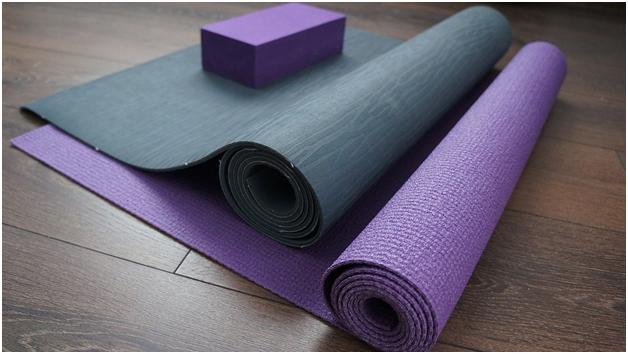
A few decades ago, people used to look at me with weird facial expressions when I said I taught yoga and meditation for a living. Now, at the supermarket or in the bank, people say, ?Oh yes, I could really do with that". Yoga in India developed within the culture very independently. There is big divide between teachers whose communities are of Indian origin and those who are can be called ?converted yogis.
However, many students of Yoga today experience the growing pains of a path which has gone from being a native, spiritual practice of minority groups, born from Vedic roots on the Indian sub-continent, in the period BC, to one that has been increasingly adapted by non-Indians since the 1950s. Many of these people came of age during the 1960s and encountered the practices through the hippie subculture before receiving any formal training in India, to become one of the largest spiritual practices to coalesce around issues of health in the world.
Today there is an accepted group of tastemakers and trendsetters who speak for contemporary yoga. How accurately and honestly are these schools of yoga passing on yoga knowledge to new generations, and what is the relation between Australian (or American, U.K, South American or whichever) yogis and those from India, where spiritual practice was born from Hindu roots well before the birth of Judaism, Buddhism, Jainism, Christianity and Islam?
Whilst it is true that some 'gurus' seek to reify their positions and expand their influence, not that they are able to enact any sort of legislation that is in any way binding, they do however, have the power of their institutes and magazines to push their version of the contemporary yoga status quo.
Additionally, today, there is also little, if any consideration given to the formal teaching of yoga or the nature of the teacher's role or tasks. With a sense that yoga is something already so well known that it can be taken for granted, being a yoga teacher pretty much equates with being an instructor in exercise (asana) techniques, with no real scope for challenging this assumption.
Quality in yoga is not just about compliance or aptitude. It must include spiritual values and sustainable life practices, that include the yamas (nonviolence, non-stealing, non-lying, non-misuse of sexuality and non-greed) and the niyamas (contentment, purity, sacrifice, self study and awareness of something vaster than the Self) together with asana (postures), pranayama (breathwork), pratyahara (sensory withdrawal), dharana (concentration) and dhyana (meditation). On the other hand however, amongst the contemporary yoga generations there is a greater awareness and mutual respect for strategies in relation to learning and growth with more inclusions of social issues such as gender, race and sexuality that may have been overlooked by older Indian generations.
In yoga, there is one teacher, that of direct experience (maintain a day-to-day calm awareness of your body, sensations, thoughts and existence) and there is also only one sangha (the Sanskrit word for community). Individual people, individual teachings, all are yogis; all is yoga. All is one. Shanti Gowans
A Human Pattern
 The forest drips and glows with green. The tree-frog croaks his far-off song. His voice is stillness, moss and rain, drunk from the forest ages long. We cannot understand that call unless we move into his dream, where all is one and one is all and frog and python are the same. We with our quick dividing eyes, measure, distinguish and are gone. The forest burns, the tree-frog dies, yet one is all and all is one. Judith Wright, Rainforest Gallery, Mt. Donna Buang
The forest drips and glows with green. The tree-frog croaks his far-off song. His voice is stillness, moss and rain, drunk from the forest ages long. We cannot understand that call unless we move into his dream, where all is one and one is all and frog and python are the same. We with our quick dividing eyes, measure, distinguish and are gone. The forest burns, the tree-frog dies, yet one is all and all is one. Judith Wright, Rainforest Gallery, Mt. Donna Buang
What do many biblical characters, Knights of the Middle Ages, ancient Shaman and the initiation rites of many indigenous peoples have in common? Time alone in the wilderness. Rainforest Gallery, Mt. Donna Buang
Avoid being an Information Junkie
There is a difference between 'panning for gold' in your email inbox, Facebook or YouTube video, versus going out to the places where what you need is available, in abundance.
It's easy to get sucked into becoming an information junkie. Seminars, books, training courses... there are so many, and they all sound like they 'could' be what you need. So how do you know what's nothing more than a shiny object, as opposed to a resource that will genuinely help you grow to new heights?
Simply sitting through a webinar or training course might feel like you are taking action, but really you are in 'absorb' mode instead of 'act' mode. To benefit from this type of resource, you have to risk investing yourself in the process and working hard, despite the possibility of it not paying off.
Before you make that investment, pay for those resources with your money or with your equally valuable time, ask yourself:
Does what this teaches align with my goals, my needs, my desires and purpose?
Do I have the time and energy to truly commit myself to this, not only to make a study of it, but to actively implement what I learn?
Do I trust the source? Do they feel real? Do they have real students I can talk to, whose success stories are genuine and realistic representations of the outcomes most hard-working students can expect to achieve?
If you can answer "yes" to each of those questions, then you've found a good investment. If the answer is "no" or "I'm not sure" then you'll serve your life better by looking elsewhere.
Don't become an addict forever seeking one more quick fix. Become the owner of your destiny by choosing well and working hard to achieve lasting success. Shanti Gowans
Generosity
You, or any one person behaving generously, inspires observers to behave generously later, toward different people. In fact, the researchers (based on a study by James Fowler of the University of California, San Diego, and Nicholas Christakis of Harvard, published in the Proceedings of the National Academy of  Science) found that altruism could spread by three degrees - from person to person to person to person. As a result, they write, each person in a network can influence dozens or even hundreds of people, some of whom she or he does not know and has not met.
Science) found that altruism could spread by three degrees - from person to person to person to person. As a result, they write, each person in a network can influence dozens or even hundreds of people, some of whom she or he does not know and has not met.
Giving has also been linked to the release of oxytocin, a hormone (also released during sex and breast feeding) that induces feelings of warmth, euphoria, and connection to others. In laboratory studies, Paul Zak, the director of the Centre for Neuroeconomics Studies at Claremont Graduate University, has found that a dose of oxytocin will cause people to give more generously and to feel more empathy towards others, with ?symptoms lasting up to two hours. And those people on an oxytocin high can potentially jump start a virtuous circle, where one person's generous behaviour triggers another's, says Zak.
However, we know that the human brain is hardwired to judge. This survival mechanism makes it very challenging to meet someone without evaluating and interpreting their behaviour.
While we tend to think that our judgments are based on the content of conversations and other obvious behaviours, the research says otherwise. In fact, the majority of our judgments are focused on smaller, subtler things, such as handshakes and body language. We often form complete opinions about people based solely on these behaviours.
We are so good at judging other people's personalities based on small things that, in a University of Kansas study, subjects accurately predicted people's personality traits, such as extroversion/introversion, emotional stability, agreeableness, conscientiousness, and openness, simply by looking at pictures of the shoes they wore!
Our unconscious behaviours have a language of their own, and their words aren't always kind.
These behaviours have likely become an integral part of who you are, and if you don't spend much time thinking about them, now is a good time to start, because they could be sabotaging your life and/or career.
How you treat receptionists and waiters
How you treat support staff is so indicative of your makeup that it has become a common interview tactic. By gauging how you interact with support staff on your way in and out of the building, interviewers get a sense for how you treat people in general. Most people act the part when they're speaking to the hiring manager or other ?important? people, but some will pull a Jekyll and Hyde act the moment they walk out the door, treating others with disdain or indifference. Business lunches are another place this comes to light. No matter how nice you are to the people you have lunch with, it's all for naught if those people witness you behaving badly toward others.
How often you check your phone
There's nothing more frustrating and off-putting than someone pulling out their phone mid-conversation. Doing so conveys a lack of respect, attention, listening skills, and willpower. Unless it's an emergency, it's wise to keep your phone holstered. A study from Elon University confirms that pulling out your phone during a conversation lowers both the quality and quantity of face-to-face interactions.
How long you take to ask questions

Have you ever had a conversation with someone where they talked about themselves the entire time? The amount of time someone allows to pass before they take an interest in you is a strong personality indicator. The consensus is that people who only talk about themselves tend to be loud, self-absorbed takers', and people who only ask questions and share little about themselves are usually quiet, humble 'givers'. Those who strike a nice balance of give-and-take are reciprocators and good conversationalists.
Your handshake
It's common for people to associate a weak handshake with a lack of confidence and an overall lackadaisical attitude. A study at the University of Alabama showed that, although it isn't safe to draw assumptions about someone's competence based on their handshake, you can accurately identify personality traits. Specifically, the study found that a firm handshake equates with being less shy, less neurotic, and more extroverted.
Tardiness
Showing up late leads people to think that you lack respect and tend to procrastinate, as well as being lazy or disinterested. However, contrary to these perceptions, a San Diego State University study by Jeff Conte revealed that tardiness is typically seen in people who multitask, or are high in relaxed, Type B personality traits. Conte's study found that Type B individuals are often late because they experience time more slowly than the rest of us. Bottom line here is not to read too much into people showing up late. It's better to ask what's behind it than to make assumptions.
Handwriting
There are all manner of false stereotypes attempting to relate your handwriting to your personality. For example, people believe that how hard you press down on the paper relates to how uptight you are, the slant of your writing indicates introversion or extroversion, and the neatness/sloppiness of your writing reveals organisational tendencies. The research is inconclusive at best when it comes to handwriting and personality. If you have an important letter to write, I'd suggest sticking to the keyboard to keep things neutral.
Eye contact
The key to eye contact is balance. While it?s important to maintain eye contact, doing so 100% of the time is perceived as aggressive and creepy. At the same time, if you only maintain eye contact for a small portion of the conversation, you'll come across as disinterested, shy, or embarrassed. Studies show that maintaining eye contact for roughly 60% of a conversation strikes the right balance and makes you come across as interested, friendly, and trustworthy.
Bringing It All Together
What other behaviours yield insight into your personality. Whilst sometimes the little things in life make a big difference, and it's good to be ready for them, so that you can make a strong impression, start to free yourself from judging and practice loving kindness and generosity.
However, whether you buy gifts, volunteer your time, or donate money to charity, your giving is much more than just a one off choice. It may help you build stronger social connections and even jump start a cascade of generosity through your community. And don't be surprised if you find yourself benefiting from a big dose of happiness in the process. Shanti Gowans
What is, is
The only time we suffer is when we wrestle with a thought that is contrary to "what is". When the mind is perfectly clear, 'what is' is what we accept in this moment. If you want your reality to be different to 'what is' then you might as well try to teach your horse to 'moo'. You can try and try, but in the end your horse will look up at you and neigh. Wanting your reality to be different than what it is in this moment, is just as hopeless. You can spend the rest of your life trying to teach your horse to 'moo'.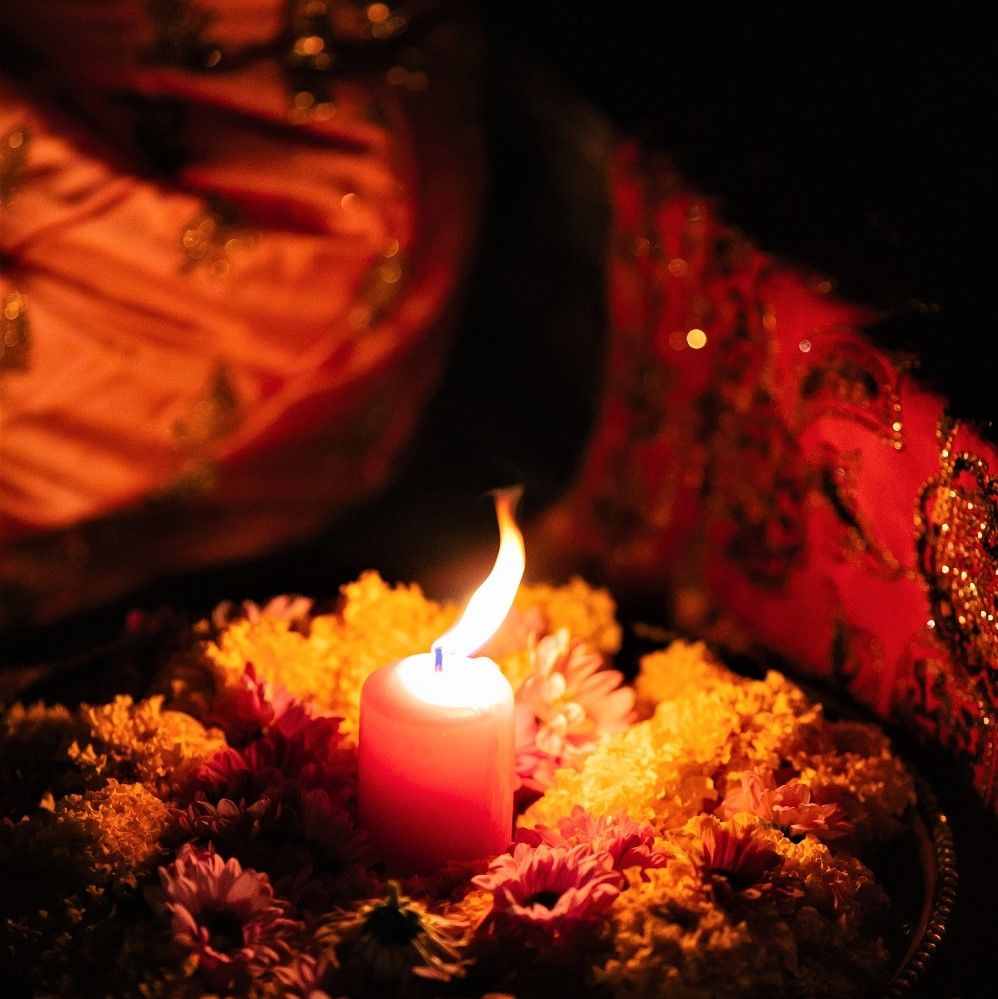
And yet if you pay attention, you'll notice that you think thoughts like this all the time. Whenever the word 'should' shows up, that's what is going on, as in "I should be thinner, my friend should be less sensitive, my spouse should be more attentive" you get the idea...
These thoughts are ways of wanting reality to be different than it is. Here is the point - all the stress you feel in your life at this moment is caused by arguing with 'what is'.
People say to me, "But if I simply accept reality then I will become passive and nothing will change. I answer them with this question. Which of these statements makes more sense? "I wish I hadn't lost all that money." or "What can I do now to create more income?"
Accepting 'what is' doesn't mean you settle for the way things are, it just means you give up all the resistance and inner struggle by wishing it were different.
When undesirable things happen, it can be helpful not to let go and not mentally argue with them. We know this, and the only reason we continue doing it is because it is a habitual pattern. You can change your habitual patterns when you work with your core beliefs and subconscious mind. Shanti Gowans
Authenticity
We're trained to put our best foot forward, not to show our weakness, not to let 'them' know what's really going on behind the scenes. Don't let them see you fail.
 It's easy to reflect on your life and see ten or more things you should be doing that you're not, and ten more things you could be doing better than you are. All you have to do is open a magazine, or search 'yoga' on the internet, and you'll be flooded with perfect bodies in perfect poses. Look in any business development group and you'll see endless images of success and prosperity. These are flashes of reality. And often manipulated at that.
It's easy to reflect on your life and see ten or more things you should be doing that you're not, and ten more things you could be doing better than you are. All you have to do is open a magazine, or search 'yoga' on the internet, and you'll be flooded with perfect bodies in perfect poses. Look in any business development group and you'll see endless images of success and prosperity. These are flashes of reality. And often manipulated at that.
When you compare yourself to others, you take attention and energy away from your unique gifts. When you're comparing, you're not able to let your brilliance shine. You wind up trying to look the way they look, or do it the way they're doing it, even though you might have a different way of doing things that aligns with your soul.
Secondly, you are not able to develop your gifts to their fullest. You wind up being a jack of all trades and a master of none.
Thirdly, you will suffer from 'bright, shiny object syndrome because everything cool and new will be the thing that you've been missing. You'll waste thousands of dollars on trainings, certifications and programs you don.t need, and not get the results you want. You'll waste precious time spinning your wheels, trying to figure out why everyone else Photo via A. Rowley
is successful and you're not. And worst of all, you'll diminish yourself into playing small or even quitting.
The third reason is the most severe, because you are here to serve people. When you play small, you don't serve the people you're here to serve. The world need you, and we don't have time to waste.
The main reason most people are afraid to fail is not because they won't reach their goal, it's the fear of judgement, criticism, and letting down the people they love, and 'what will they think'.
Often, the belief goes something like this: If you keep projecting the image of success, eventually you'll feel successful. But it's not that simple. What you wind up with is a double-life. A lie.
And your authentic divine nature never has a chance to shine because you are always in the shadow of your projected image. Just a step or two out of the light of your truth. Shanti Gowans
The Truth
In simplest terms, You are always exactly where you need to be. Always. You have everything you need to take the next step forward. You may not be able to see the whole path, but if you can see the next step, you can take it.
Just. One. Step.
This is a new era of creativity and development. Not all of the old rules apply. In fact, most don't. We're finding our way through to the next level together, one step at a time, and 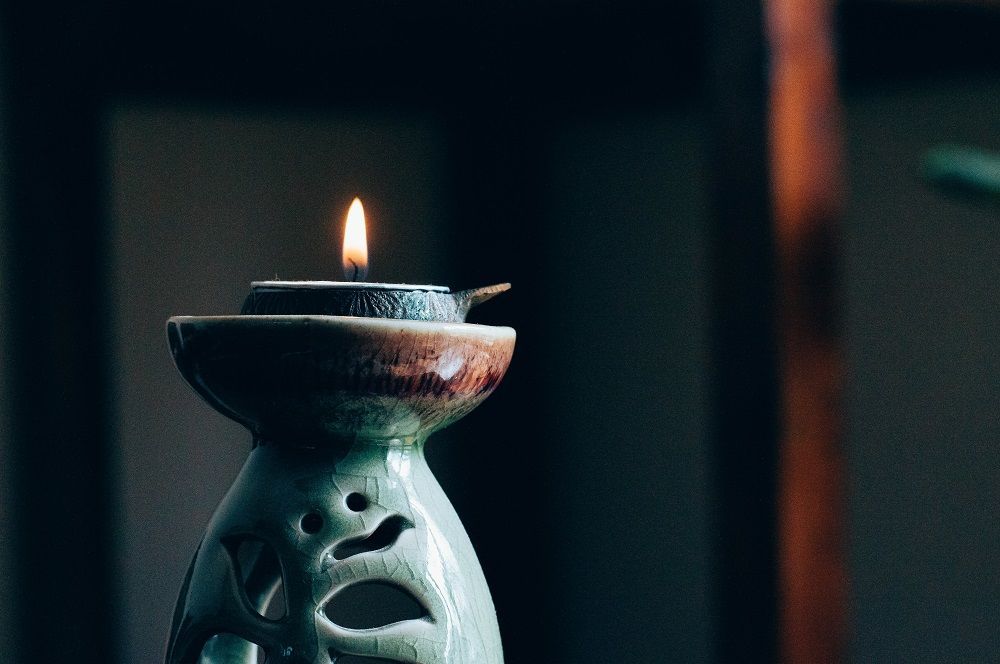 sometimes it's messy. Sometimes it's confusing. Sometimes it feels embarrassing.
sometimes it's messy. Sometimes it's confusing. Sometimes it feels embarrassing.
Drop the stress now.
Here is my promise to you. If you stop comparing yourself to others, you will immediately drop tons of weight on your shoulders. If you stop comparing yourself to where you think you should be, and you'll drop another load.
Trust the universe. The space between those flashes of excellence and beauty are not always pretty. Not in anyone's life. If you can focus on closing the gap between those flashes of brilliance just a little bit every day, before you know it, you'll be living the charmed life, in a creative flow.
Will it be an easy life? No. You will still have to work hard. But it's a whole lot easier than keeping up appearances and swallowing all of your shame and disappointment because things didn't go the way you planned. And it's infinitely easier than judging yourself for not being where you think you should be.
So the next time you find yourself comparing, here are 3 things to remember.
- Don't buy into the images. You never know what's going on behind the scenes. Those who seem to have it all together often have the scariest skeletons.
- You are always exactly where you're supposed to be. You are always perfectly positioned for your own growth and progress. Rather than trying to figure out why me, simply take the next step you can take.
- You are infinite awareness. Any problem you could possibly encounter is entirely outmatched when you connect with your divine nature, with a Self that has never been hurt and needs no improvement. You are embodied brilliance. Your purpose is not something you make up, but is something you're made of. Your profile, that unique pattern being projected all around you, carries your soul signature. Whatever is missing is what you're not giving. You generate everything you need, no matter what your circumstances. Here are a few questions to reflect upon:
- Where are you comparing yourself with others in your life?
- Where are you comparing yourself with your own image of success and where you should be?
- Who would you be if you stopped comparing yourself today? Shanti Gowans
It's a Dogs Life

Every morning I wake, take a shower, and sit for meditation. I am greeted with a wagging tail and a dog that is so happy to see me. No matter how I am feeling when I wake up, I feel great after I see Socrates.
She never wakes up saying, I don't feel good today, and she is never in a bad mood. She is just thrilled to see me and go for a quick walk outside. Then, we come in, and she is thrilled to get a treat and lay back down to repeat the whole process again when my Peter awakens an hour or so later. I think we can all learn something from our dogs and aim to live our life in a much similar way, being happy for each and every moment of everyday. It would surely make for a much better life for ourselves and those around us.
Instead, we may often wake up and think of all we have to do in the future, or think about how we didn't sleep as long as we had wanted to, or think about how we aren't feeling the best. You get the idea.
As we journey through life, we could take the approach of the dogs and be happy about everything, enjoy whatever is in front of us and greet everyone with a waging tail or in human language, a big smile.
Give this a try for the next week. Start each day happy and look for every opportunity for the good things in your life. I feel convinced that we will all have a better week, and those around us will too. Shanti Gowans
Karma
Karma is the Sanskrit word for action. It is equivalent to Newton's law in physics, that every action must have a reaction. Every though you think, every word you speak or act you initiate, initiates a force that will react accordingly. This returning force maybe modified, changed or suspended, but most people are not able eradicate it.
This law of cause and effect is not reward, punishment, payback, or retribution, it simply is how things function in the manifested universe.
A person may not escape the consequences of their actions, and will suffer only if the person himself or herself has ripened the conditions for their suffering. Ignorance of the law is no excuse whether laws are man-made or universal. To become empowered in the worlds of karma and reincarnation here are some pointers about karmic laws. Shanti Gowans
Cause and Effect, The Great Law
'As you sow, so shall you reap.' This is also known as the 'Law of Cause and Effect.'
If what you want is happiness, peace, love, and friendship, then you need to BE happy, peaceful, loving and a true friend.
Whatever you put out in the Universe is what comes back to you.
The Law of Creation
Life doesn't just happen. It requires your participation, conscious or unconscious!
We are one with the Universe both inside and out.
Whatever surrounds you provides clues to your inner state.
Be yourself, and surround yourself with what you want to have in your life.
The Law of Humility
You can't change something if you refuse to accept it.
If what you see is an enemy, or someone with a character trait that you deem to be negative, then you yourself are not focused on a higher level of existence.
The Law of Growth
Wherever you go, there you are.'
To grow in Spirit we must change, and not the people, places or things around us. The only given you have in your life is yourself, and that is the only factor you have control over.
When you change who and what you are within your heart, your life follows suit and change too.
The Law of Responsibility
Whenever there appears to be something wrong in our lives, there is something wrong within us.
We mirror what surrounds us, and what surrounds us mirrors us; this is a Universal Truth.
We must take responsibility for what is in our life.
The Law of Connection
Even if something you do seems inconsequential, it is very important that it gets done as everything in the Universe is connected.
Each step leads to the next step, and so forth and so on.
Someone must do the initial work to get a job done.
Neither the first step nor the last are of greater significance, as they were both needed to accomplish the task.
Past, Present and Future are all connected.
The Law of Focus
You cannot think of two things at the same time.
Because of this, when our focus is on Spiritual Values, it is impossible for us to harbour lower thoughts such as greed or anger.
The Law of Giving and Hospitality
If you believe something to be true, then sometime in your life you will be called upon to demonstrate that particular truth.
Here is where we put what we claim that we have learned into actual practice.
The Law of Here and Now
Looking backward to examine what was, or forward to worry about the future, prevents us from being totally in the here and now.
Old thoughts, old patterns of behaviour, and old dreams block and prevent us from having new ones.
The Law of Change
History will continue to repeat itself until you learn the lessons that you need to change your path.
The Law of Patience and Reward
All rewards require initial toil.
Rewards of lasting value require patient and persistent toil.
True joy comes from doing what we're suppose to be doing, and understanding that this is the reward. However, often knowing about the reward will come in its own time.
The Law of Significance and Inspiration
You get back from something whatever you have put into it.
The true value of something is a direct result of the energy and intent that is put into it.
Every personal contribution is also a contribution to the Whole.
Lacklustre contributions have no impact on the Whole, nor do they work to diminish it.
Loving contributions bring life to, and inspire, the Whole. Shanti Gowans